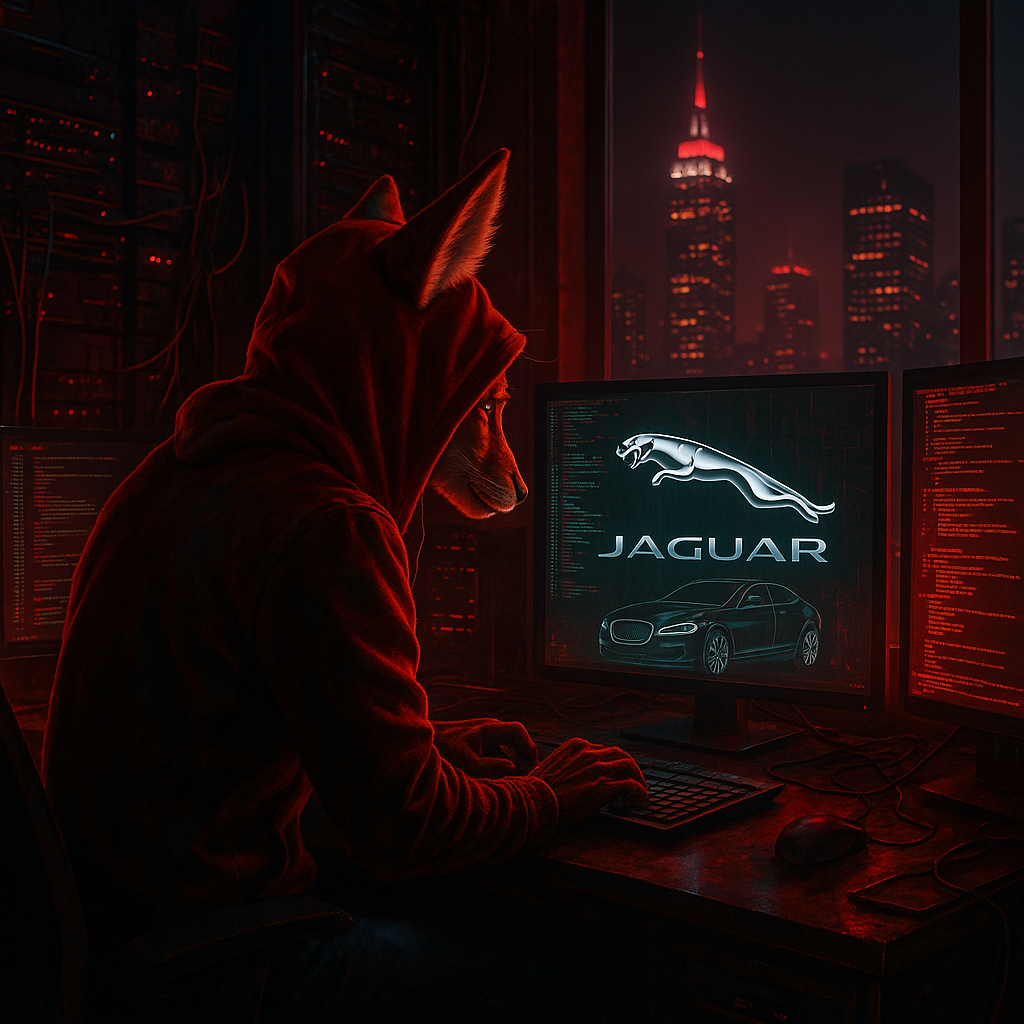
Jaguar Land Rover (JLR), a crown jewel of the UK automotive industry and a subsidiary of Tata Motors, is no stranger to global recognition. Known for sleek Jaguar sedans and rugged Land Rover SUVs, the company epitomizes innovation, heritage, and cutting-edge technology. But in late August 2025, that reputation took a dramatic hit—not on the showroom floor, but in cyberspace.
A sudden cyberattack forced JLR to shut down production across multiple UK factories, halted vehicle deliveries, and left dealerships struggling to register cars during one of the busiest sales periods of the year. This wasn’t just an inconvenience—it was a wake-up call about how cyber threats in manufacturing can stall entire industries and ripple through supply chains worldwide.
This blog dives deep into the Jaguar Land Rover cyberattack what happened, who was behind it, how it disrupted the automotive giant, and what lessons every business can take from it.
The disruption spread like wildfire: halted production meant thousands of cars couldn’t be completed or shipped. In an industry where just-in-time supply chains are standard, the effects were immediate and severe.
The claim came from “Rey,” an individual associated with groups such as Hellcat, Scattered Spider, ShinyHunters and LAPSUS$. These collectives are notorious for:
Unlike traditional, state-sponsored cybercrime syndicates, these groups thrive on disruption, humiliation, and visibility. This makes them unpredictable—and therefore dangerous.
This disruption underscored the real-world risks of cyber threats in manufacturing—where a single breach can cascade from production lines to dealerships and customers. Some of the most immediate impacts included:
Factories at Solihull and Halewood—critical sites for producing Range Rover, Discovery, and Jaguar models—went silent. Supply chains froze, with component suppliers left in limbo.
Dealerships across the UK couldn’t register or deliver cars. For customers eagerly awaiting their vehicles, delays stretched into weeks.
Analysts projected losses in the tens of millions of pounds per week due to production stoppages, lost sales, and recovery costs.
While JLR confirmed no evidence of customer data theft, the attack still triggered investigations by the UK Information Commissioner’s Office. Reassuring customers was as important as restoring systems.
JLR isn’t alone. Automakers worldwide are increasingly in hackers’ crosshairs. Why?
The automotive sector relies on a global network of parts suppliers. This interconnectedness magnifies supply chain cyber risks, where one weak link can jeopardize the entire production process.
Modern cars are “computers on wheels,” with connected infotainment, telematics, and autonomous features—all potential attack surfaces.
Any disruption—even for days—causes ripple effects across the entire ecosystem, making automakers tempting targets for extortion.
Companies like Jaguar Land Rover carry prestige. Attacks against them gain instant media coverage, amplifying the hackers’ notoriety.
To its credit, JLR acted swiftly with:
The JLR hack offers powerful lessons for businesses in all sectors—not just automotive:
Halting production was costly, but it prevented deeper infiltration. In cybersecurity, speed matters more than pride.
Automakers must ensure every supplier, from electronics to seat fabric, has strong cyber hygiene. Weak partners create exploitable vulnerabilities.
Cyberattacks erode trust as much as they disrupt operations. Proactive communication with customers and stakeholders is essential.
Many attacks exploit human error—like phishing emails. Regular training reduces the risk of accidental breaches.
Disaster recovery and business continuity plans must account for cyberattacks, not just physical threats.
The JLR cyberattack is just one example of a growing trend: cyber threats in manufacturing are escalating.Their implications include:
Imagine the disruption:
This is the reality of cyber risks. The JLR incident demonstrates that cyberattacks don’t just affect one company—they can destabilize entire ecosystems.
The automotive industry must adopt a “security by design” approach:
Cybersecurity isn’t a one-time investment—it’s a culture shift.
The Jaguar Land Rover cyberattack showed how quickly hackers can bring a global enterprise to its knees. It also highlighted the urgent need for resilience in the face of cyber threats in manufacturing and supply chain cyber risks.
No industry is immune, and the stakes couldn’t be higher. From revenue losses to customer trust, the cost of unpreparedness dwarfs the cost of prevention.
If the JLR cyberattack teaches us anything, it’s this: the next cyberstorm could hit any organization, any day.
At RedFox Security, we help businesses like yours build ironclad defenses against today’s most dangerous cyber threats. Contact RedFox Security today to fortify your digital infrastructure and don’t forget to explore our industry-leading cybersecurity courses and turn your workforce into your strongest defense line.
Don’t wait until hackers hit your road—take the driver’s seat in cybersecurity today.